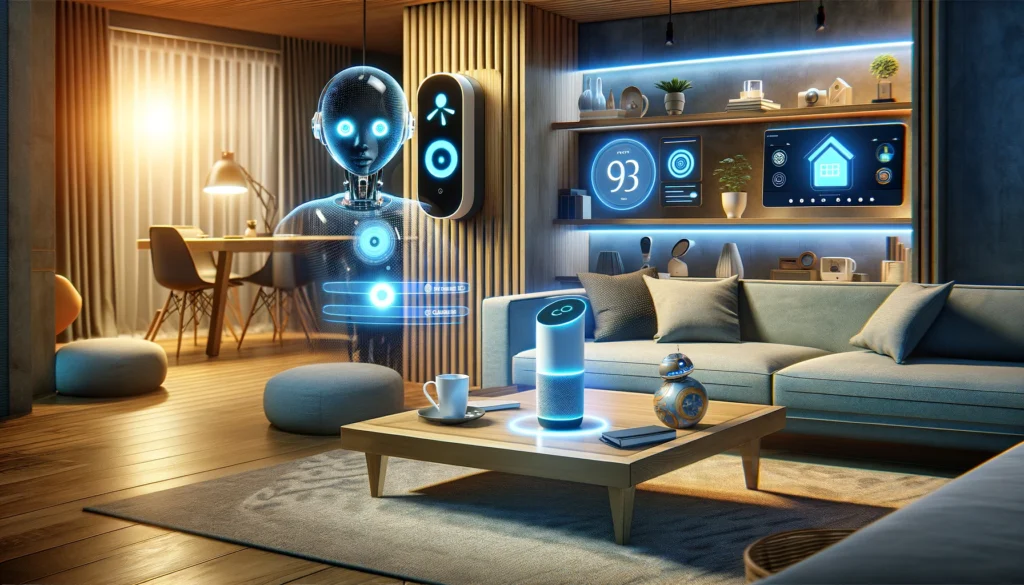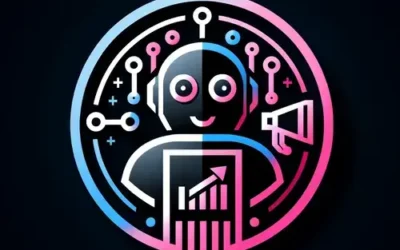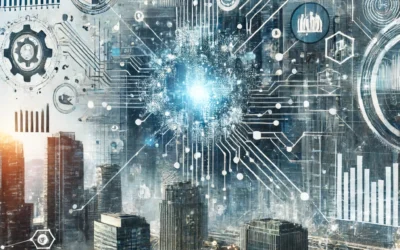Artificial Intelligence (AI) is no longer a futuristic concept confined to science fiction. It has seamlessly integrated into our everyday lives, profoundly influencing how we live, work, and interact with the world around us. From the moment we wake up to the time we go to bed, AI technologies are at work, enhancing convenience, efficiency, and personalisation. In this blog, we will explore various AI applications in daily activities, such as virtual assistants, smart home devices, and personalised recommendations, and understand how these innovations are transforming our routines.
Virtual Assistants: Your AI-Powered Companion
One of the most prominent and widely adopted forms of AI in everyday life is the virtual assistant. Virtual assistants like Amazon’s Alexa, Google Assistant, Apple’s Siri, and Microsoft’s Cortana have become integral parts of many households. These AI-powered companions are designed to help users with a wide range of tasks, from setting reminders and sending messages to providing weather updates and controlling smart home devices.
Routine
Imagine starting your day with a simple voice command: “Hey Google, what’s the weather like today?” In an instant, your virtual assistant provides a detailed weather forecast, helping you decide what to wear. Need to know your schedule for the day? Just ask, and your assistant will list your appointments, ensuring you’re always on top of your commitments.
Hands-Free Convenience
Virtual assistants offer hands-free convenience, making it easier to multitask. Whether you’re cooking and need a recipe, or you’re driving and need directions, a simple voice command can provide the information you need without interrupting your flow. This seamless integration into daily tasks significantly enhances productivity and efficiency.
Smart Home Devices: Transforming Living Spaces
Smart home devices represent another area where AI is making a significant impact. These devices, which include smart thermostats, lighting systems, security cameras, and appliances, are designed to create a more convenient, energy-efficient, and secure living environment.
Energy Efficiency and Cost Savings
Smart thermostats, like Nest and Ecobee, use AI to learn your heating and cooling preferences and adjust the temperature accordingly. They can also detect when you’re not home and adjust settings to save energy. Over time, these adjustments can lead to significant cost savings on energy bills.
Enhanced Security
AI-powered security systems, such as Ring and Arlo, offer advanced features like motion detection, facial recognition, and real-time alerts. These systems can differentiate between a potential intruder and a harmless passerby, reducing false alarms and enhancing overall security. Additionally, you can monitor your home remotely through smartphone apps, providing peace of mind no matter where you are.
Convenience and Comfort
Smart lighting systems, such as Philips Hue, allow you to control the lighting in your home with voice commands or through an app. You can set schedules, create customised lighting scenes, and even adjust the colour and intensity of the lights to suit your mood or activities. Smart appliances, like refrigerators that track inventory and suggest recipes based on available ingredients, further enhance convenience and reduce the time spent on mundane tasks.

Personalised Recommendations: Tailoring Experiences
AI-driven personalised recommendations have become popular across various platforms, from streaming services and online shopping to social media and content consumption. These recommendations are designed to enhance user experience by providing tailored suggestions based on individual preferences and behaviours.
Entertainment
Streaming services like Netflix, Spotify, and YouTube leverage AI algorithms to analyse your viewing or listening history and suggest content that aligns with your tastes. Whether it’s recommending a new TV series, a playlist, or a YouTube channel, these platforms ensure that you always have something engaging to watch or listen to. This level of personalisation not only enhances user satisfaction but also helps discover new content that might have been overlooked otherwise.
Shopping
E-commerce giants like Amazon and eBay use AI to offer personalised shopping experiences. By analysing your browsing history, purchase patterns, and even the items in your shopping cart, these platforms can recommend products that are most relevant to you. This personalised approach not only makes shopping more efficient but also increases the likelihood of finding products that meet your specific needs and preferences.
Social Media and News
Social media platforms like Facebook, Instagram, and Twitter use AI to curate your feed, showing you content that is most likely to interest you based on your interactions, likes, and follows. Similarly, news aggregators like Google News and Apple News use AI to provide personalised news stories, ensuring you stay informed about topics that matter to you. This tailored approach helps cut through the noise and delivers relevant information, enhancing the overall user experience.

Healthcare: AI for Better Wellbeing
AI’s impact on daily life extends beyond convenience and entertainment; it is also revolutionising healthcare. AI-powered applications and devices are helping individuals monitor their health, manage chronic conditions, and access medical information more efficiently.
Health Monitoring
Wearable devices like Fitbit and Apple Watch use AI to track various health metrics, such as heart rate, sleep patterns, and physical activity. These devices provide real-time feedback and personalised recommendations, encouraging healthier lifestyles and enabling early detection of potential health issues.
Telemedicine
AI-powered telemedicine platforms, such as Babylon Health and Teladoc, offer virtual consultations with healthcare professionals. These platforms use AI to triage symptoms, provide preliminary diagnoses, and suggest appropriate treatments. This accessibility to medical advice from the comfort of home is especially beneficial for individuals with mobility issues or those living in remote areas.
Mental Health Support
AI is also playing a role in mental health support through applications like Woebot and Wysa. These AI-driven chatbots provide users with emotional support, cognitive behavioural therapy (CBT) techniques, and mindfulness exercises. By offering a non-judgmental and accessible form of support, these applications are helping to break down barriers to mental health care and promote overall wellbeing.
Education: AI-Enhanced Learning
In the realm of education, AI is transforming how we learn and teach. From personalised learning experiences to administrative efficiencies, AI is enhancing educational outcomes and accessibility.
Personalised Learning
AI-powered platforms like Duolingo and Khan Academy provide personalised learning experiences tailored to individual students’ needs and progress. These platforms use AI to analyse a student’s performance, identify areas of improvement, and adjust the difficulty level accordingly. This personalised approach helps students learn at their own pace, increasing engagement and retention.
Administrative Efficiency
AI is also streamlining administrative tasks in educational institutions. AI-driven tools can handle tasks such as grading, scheduling, and student admissions, reducing the workload on educators and administrators. This allows them to focus more on teaching and student support, ultimately enhancing the educational experience.
Enhanced Accessibility
AI technologies are improving accessibility in education for students with disabilities. Tools like speech-to-text, text-to-speech, and real-time translation services enable students with hearing, vision, or language barriers to access educational content more easily. This inclusivity ensures that all students have the opportunity to succeed, regardless of their individual challenges.

Transportation: Smarter and Safer Journeys
AI is revolutionising the transportation sector, making journeys smarter, safer, and more efficient. From autonomous vehicles to intelligent traffic management systems, AI is transforming how we move from one place to another.
Autonomous Vehicles
Self-driving cars, like those developed by Tesla and Waymo, use AI to navigate roads, interpret traffic signals, and avoid obstacles. These vehicles have the potential to reduce accidents caused by human error, lower emissions through optimised driving, and provide mobility solutions for individuals who are unable to drive.
Intelligent Traffic Management
AI-powered traffic management systems analyse data from various sources, such as traffic cameras and sensors, to optimise traffic flow and reduce congestion. By predicting traffic patterns and adjusting signal timings in real-time, these systems can significantly improve the efficiency of urban transportation networks.
Ride-Sharing Services
Ride-sharing platforms like Uber and Lyft use AI to match riders with drivers, optimise routes, and predict demand. These AI-driven features help reduce wait times, lower costs, and provide a more convenient and efficient transportation option for users.
The Future of AI in Daily Life
The integration of AI into our daily routines is only the beginning. As AI technologies continue to evolve and improve, we can expect even more innovative applications that will further enhance convenience, efficiency, and personalisation in our lives. From virtual assistants and smart home devices to personalised recommendations and healthcare solutions, AI is transforming how we interact with the world around us. Embracing these advancements will not only make our daily routines more seamless but also pave the way for a future where AI is an indispensable part of our lives.










